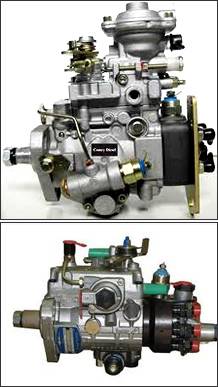



Last month I wrote about the need to learn how successful manufacturers in the past dealt with rising labor costs and changing global business conditions. This month I want to think about one of those successful strategies: supply chain partnerships.
I will describe a supply strategy that I see again and again. I almost always recommend against this strategy because really it is just a bad habit that is hard to break. Then I will describe how to make a better supply strategy.
In your factory, do you use some kind of commodity as a raw material? Maybe it is steel, copper, cotton, lumber or something else. Do you try to “beat the market” by buying large quantities when costs are low so that you will be well-stocked when costs are high? Please stop that. In the long run, it is a losing strategy. The most successful companies in advanced manufacturing do not use this strategy.
This may be a surprise, but you would likely be much better off purchasing materials only when they are needed, and from a highly qualified supplier.
Commodities trading is an industry in itself. In London, Hong Kong, New York, Dubai and 100 other financial centers around the globe, highly trained traders work constantly to win the commodities game. They buy low and sell high. They understand how to use complicated options to hedge their bets. They are supported by entire teams of analysts in buildings full of supercomputers. Are you really that good? You need to be brutally honest with yourself about this. Can you really beat those guys at their own game? If you can, then congratulations. Maybe you should be closing your factory so you can spend all your time in commodities.
But maybe you are not that good. Maybe professional commodity traders see you the same way a professional card player sees the tourist in the casino. If you are not that good in your commodity bets, you should be trying to make money with the value adding you perform in manufacturing. Stop trying to finance cash flow needs by winning at such a risky game. It is gambling, there is no other name for it, and it would not be much different if you told yourself that a trip to Las Vegas or Macau was a business investment.
So what is the alternative?
Find a vendor that will absorb the commodity risk for you and deliver these raw materials in small quantities ready-to-use. Instead of buying a month’s worth of materials, imagine buying materials enough only for one day. Imagine the material being delivered ready to use, exactly as your worker needs it. Imagine the delivery driver bringing raw materials all the way into the factory, right up to the machine where you will first do something with it.
We call this "point-of-use" delivery and it has many advantages. Here are just a few:
- You will free up all the cash you now have tied up in raw material inventory.
- You will gain flexibility with your customers because you will not be trying to push them into buying the old stuff in the warehouse. You can move with agility as demand moves from one product type to another.
- You can demand perfect quality from your vendor because you will immediately see whether raw materials meet requirements.
- Your vendor can perform the low-margin and low-skill value adding to the raw material that is not profitable for you. (I call these the "commodity activities.")
- You can focus your management expertise on the core business where you really earn your money.
- You can simplify communication on the factory floor and back to your vendor. When everyone sees exactly what should be done, the boss no longer has to tell them to do it. Or to make another example, when the delivery driver sees what materials need to be delivered, you will not need a purchasing manager to tell him to do it.
Obviously, you need a vendor you can trust to adopt this strategy. Find one. As China moves into higher-skill processes, the companies that try to play the supply game the old way will soon find themselves left out in the cold.
Know your skill and focus on that skill. It is your core competency. Do not be envious when you hear about someone who earned millions by placing all the right bets on aluminum, plastic, chromium or whatever. Of course there will be a lucky few, just as there are a lucky few who hit the jackpot at the casino. But those beautiful casinos did not get built without suckers who lost at the game. Have you ever seen how beautiful are the offices of a big-city commodities trader? Don’t be the sucker at that game either.
 33060302000733
33060302000733